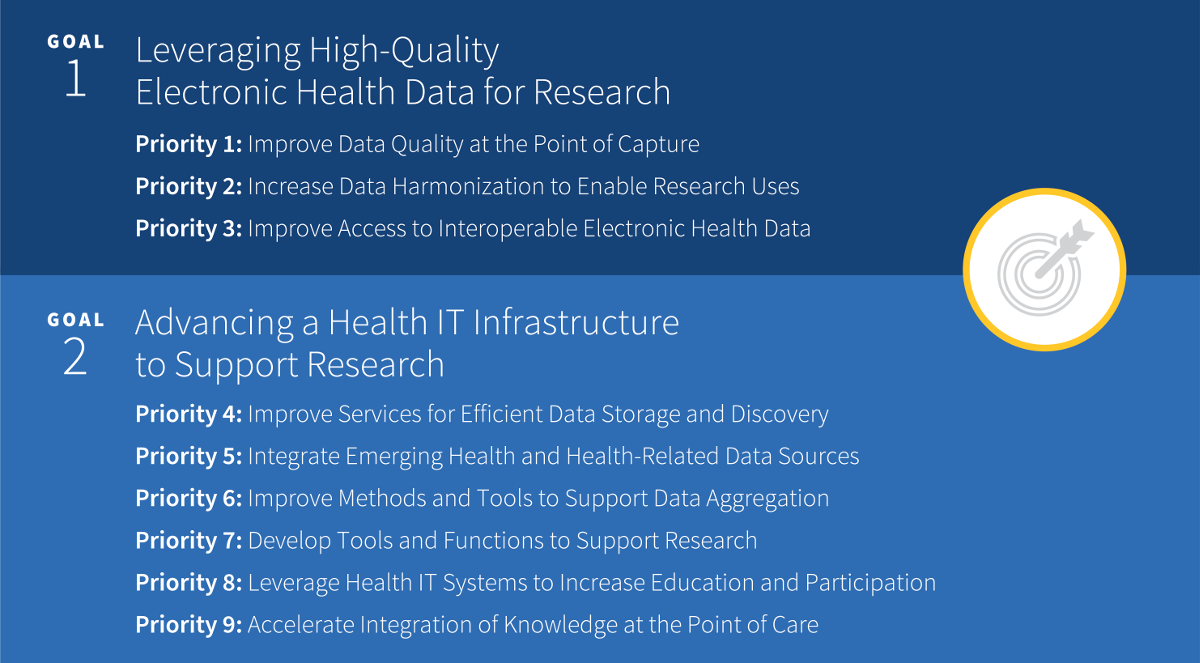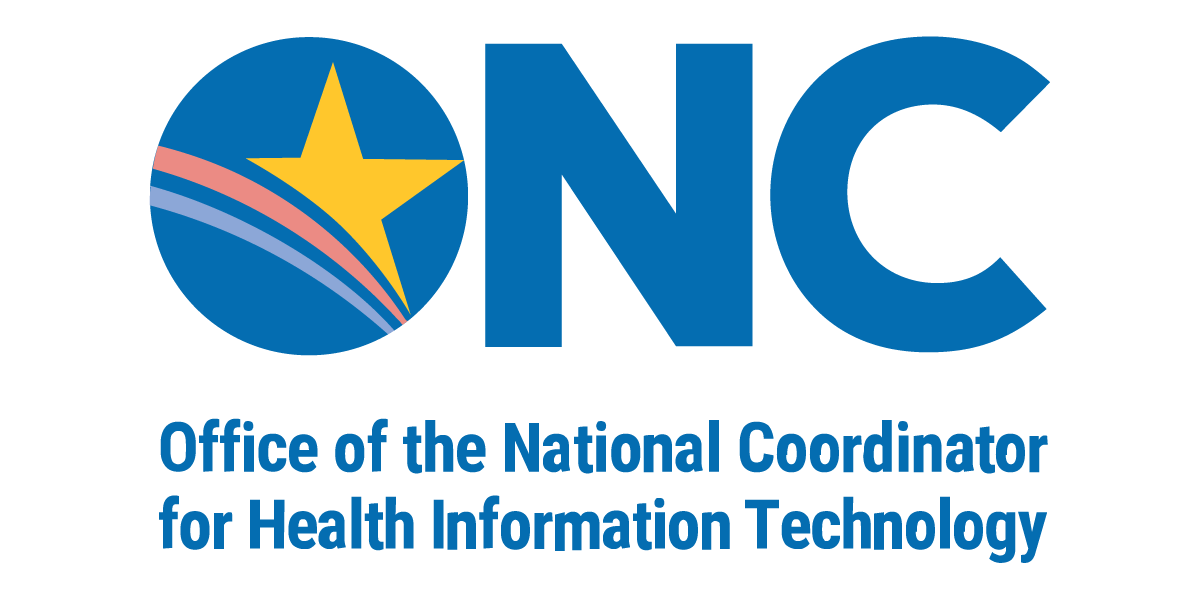The Office of the National Coordinator for Health Information Technology (ONC) led the development of National Health IT Priorities for Research: A Policy and Development Agenda, which articulates a vision of a health IT infrastructure that supports alignment between the clinical and research ecosystems. The Agenda, developed in collaboration with federal partners and with input from stakeholders, outlines nine priorities, including concrete steps that stakeholders can take to achieve that vision and enable research to happen more quickly and effectively.
The Agenda is based on findings from a literature review, interviews with experts, and an in-person stakeholder workshop. ONC staff presented early versions of the Agenda during panel discussions at two American Medical Informatics Association conferences and used attendee feedback to refine the goals and priorities.
The Agenda has two overarching goals with nine associated priority areas:

The strategies and actions are intended to address relevant data, tools, and infrastructure needs over the next 3 to 5 years, enabling researchers to pursue more complex questions and make faster, more reliable discoveries.
JAMIA Articles
Learn more about the Agenda and federal partner activities in the Journal of the American Medical Informatics Association:
Health IT Buzz Blog
Learn more about the Agenda on ONC’s blog:
Background Report
Learn more about the needs, gaps, and active initiatives that informed the Agenda:


